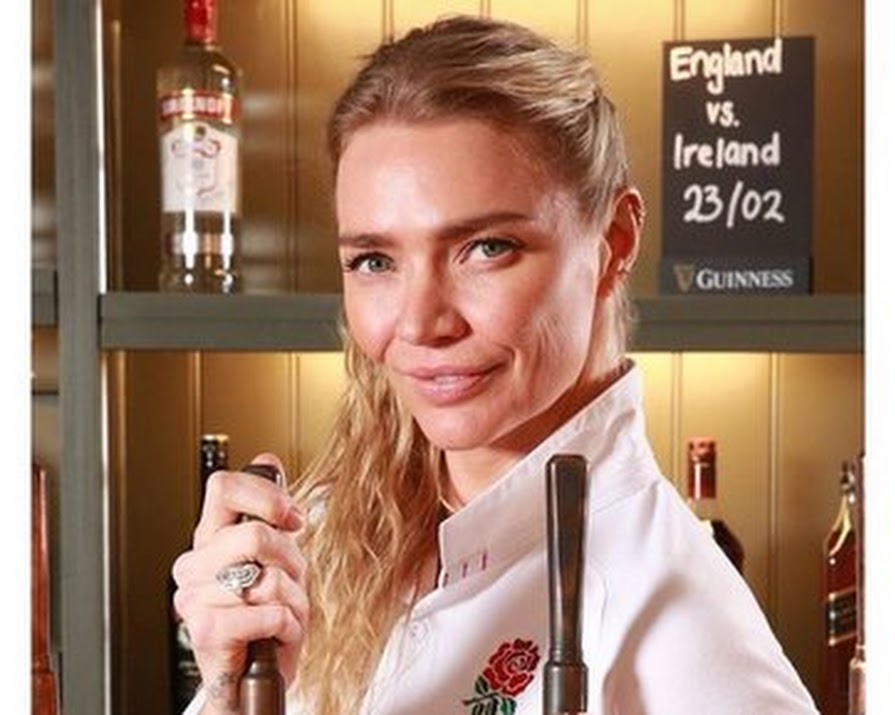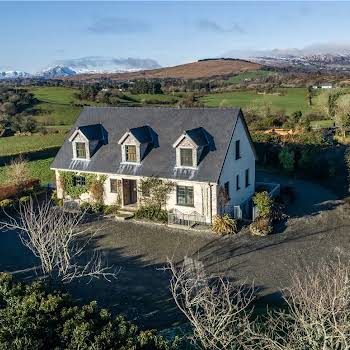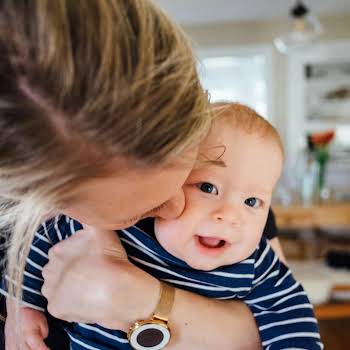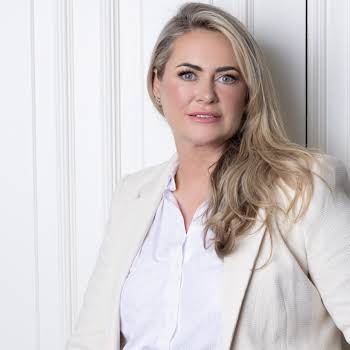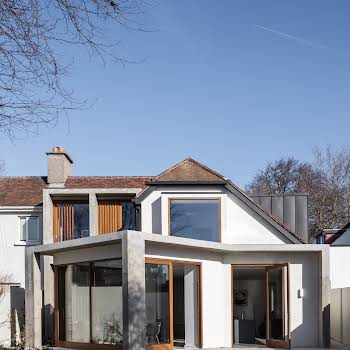
‘You were expected to be a machine’ — Jodie Kidd talks modelling, mental health and why running a pub is her favourite role yet
By Erin Lindsay
20th Feb 2020
20th Feb 2020
Former model and current publican Jodie Kidd talks to IMAGE about community, mental health and why she’s never been happier to embrace change
When I get on the phone with Jodie Kidd, it’s the day after her triumphant return to the runway as part of Tommy Hilfiger’s star-studded London Fashion Week ensemble. I expect her to be tired, and with how busy it is in the background, maybe a little stressed or burnt out. What I get is perhaps the nicest interview I’ve ever had the pleasure of conducting for IMAGE.ie — Kidd is warm, enthusiastic and only too happy to talk about her varied and unique life — it’s easy to see how she’d make the perfect pub landlady.
The former supermodel-turned-racing-driver-turned-local-publican has added many strings to her bow over the years, and has never been shy about being honest about her experiences. Kidd became an unlikely ambassador for mental health when she spoke candidly about how issues with anxiety cut her modelling career short, and how the adrenaline and excitement of race driving aided her recovery. Kidd now finds herself as a publican, running The Half Moon in Kirdford, which she bought with friends after it fell into danger of being sold and destroyed. Kidd threw herself into the deep end of learning how to run a pub with zero previous experience, and now, business is thriving — and Kidd is ready to get back to her other pursuits.
Here, I chatted to Kidd about her return to the world of fashion, how being a landlady has aided her mental health, and what’s next for the woman who’s tried everything.
I’m catching you just after your return to the runway, walking in Tommy Hilfiger’s London Fashion Week show. What was it like returning to fashion in that way?
Amazing. I’m still buzzing from it because I’m 41 now and I’m so used to doing other career paths, so it was just a wonderful thing to do. There were so many good friends that I grew up within the modelling world from 20,25 years ago there too — you had Erin O’Connor, you had Karen Nelson, Yasmin Le Bon, Naomi Campbell, so it was like coming back to a family event. I’ve literally got a sore throat from just catching up with everyone.
When you’re 15 16, 17 and you’re modelling, it’s a very lonely world, so you become very close with this caravan of people — those who do the hair and the makeup and the stylists and other models. It was just lovely to be back with them.
What Tommy is doing right now means that it’s a really amazing brand to be part of — at the show, you had all kinds of old-timers in their 40s like me, you had the younger ones, the musicians, all different sizes, all different colours, which is just amazing. I think that’s what the fashion world will need to embrace — more versatility. It was just like a breath of fresh air, I have to say.
As you mentioned, the fashion industry nowadays is very much embracing diversity and political movements more and more. How different is it now than when you started your career as a teenager? Do you think it’s a better environment now than what it was for a young model?
There’s a lot more support now. When I was modelling, backstage, it was literally a glass of champagne and off you go, whereas now, you have shakes and green juices and protein everywhere — the dietary side of things is looked after.
There are a lot more conversations going on. I was talking to someone last night that said that, for some shows, there are psychologists backstage to help the girls and just have a chat. That support is important because it is so tough — during fashion month, you’re doing 10 shows a day, in New York, London, Milan, Paris, which runs over about four or five weeks, totally exhausting, and a lot of the time, you’re on your own. Just to know that you’ve got good food backstage, you’ve got support systems, if you’re feeling exhausted, they give you time — it just shows how much more supportive the industry has become. When I was working in the late 90s, early 2000s, you were expected to be a machine. It’s fantastic that things have changed.
Nowadays, you find yourself working as a publican, which is a far cry from the world of modelling. How did owning and running a pub come about?
I’ve been living in my village for about 15 years now, which is about an hour outside of London, and, like many other beautiful little villages in the countryside, the pub was the centre of the community. But I had noticed how many of them had been closing down over the last 15 years, and how it had affected the people living there. The Half Moon, which is now my pub, had closed down, and I had heard of developers sniffing around it, and whispers that they were going to turn the site into houses, and I just didn’t want to let that happen. I managed to get two friends, who also had never worked in the industry, to buy it with me — and when we got it, we were stuck with the question “does anyone know how to run a pub?”
We knew nothing, and we had to start completely from scratch, but we wanted to keep it for the community. When you’re young, and in a big city, bars and pubs are a dime a dozen, but in a rural community, the pub is the centre of everything — we sponsor our local cricket team, we host birthdays and anniversaries, just the everyday conversations we have with the people who come in, it’s all so important. All the hardships we had to go through to get things running are all made worth it when someone thanks you for hosting an occasion that means a lot to them. The laughter and the good times that are had there makes it all worthwhile.
You’ve spoken before about having anxiety and how it affected your modelling career. Owning and running a pub is a very social job — do you think it’s helped your mental health to work in an industry like this one?
Yes, absolutely. Obviously, running the pub itself and the logistics of that can be very stressful. Being at the top of a team, where you’re used to being very solitary as a model, is stressful. But the fact that I now have people to share the stress with, to talk to other people and brainstorm, and to know that it’s not only me carrying this weight, has been so refreshing and I’ve really loved it. The ability to have these conversations with other people, and not be so singular like I was used to being since I was 15, has been really empowering and has lessened the anxiety of having to deal with something alone in my own head.
Off the back of the Tommy Hilfiger show, do you see yourself making a return to modelling?
(Laughs) What, as an OAP like me? I think that, as I’ve been out of the industry for so long, I now understand how people want to see something that’s real and tangible, especially in this world of social media where everything is false and an illusion. You want to look at a catwalk and be able to relate to it — to see how clothes will look on a body like your own. It’s a very exciting time for the industry — it’s lovely being able to see different, versatile genres of women wearing something that you can relate to.
What else is next for you?
When I bought the pub three years ago, I needed to learn everything about running it — from changing kegs to sourcing food to running a team. I was completely immersed in it, but now, it’s nice to be able to step back and know that it’s doing well on its own. And that means I can come back to the things that I love doing — I love the pub, but there are so many other things I’m excited to return to. There’s a lot I can’t talk about just yet, but I can’t wait to just completely embrace it and have so much gratitude for the amazing things to come. It’s going to be a very fun year.
Jodie Kidd is hosting the ‘Jodie Kidd Rugby Weekender’ in her pub, the Half Moon, this weekend, to celebrate the England vs Ireland GUINNESS SIX NATIONS crunch match. IMAGE: Courtesy of Guinness
Read more: ‘I am tired of people saying I don’t look or sound autistic. Attitudes need to change’
Read more: Our top 15 picks from the new H&M Studio Collection drop
Read more: Never too late: meet the women who started businesses in their 40s











